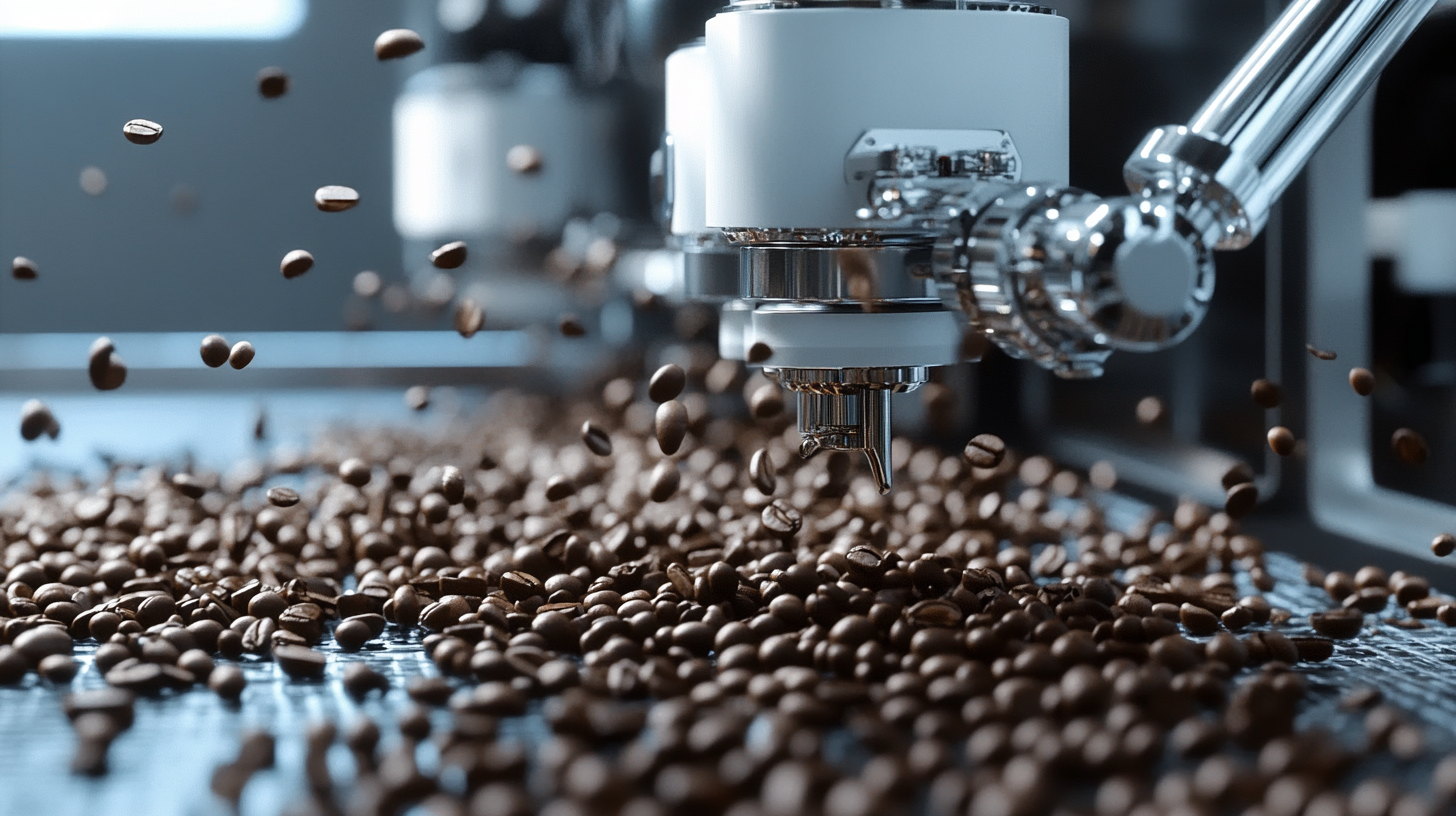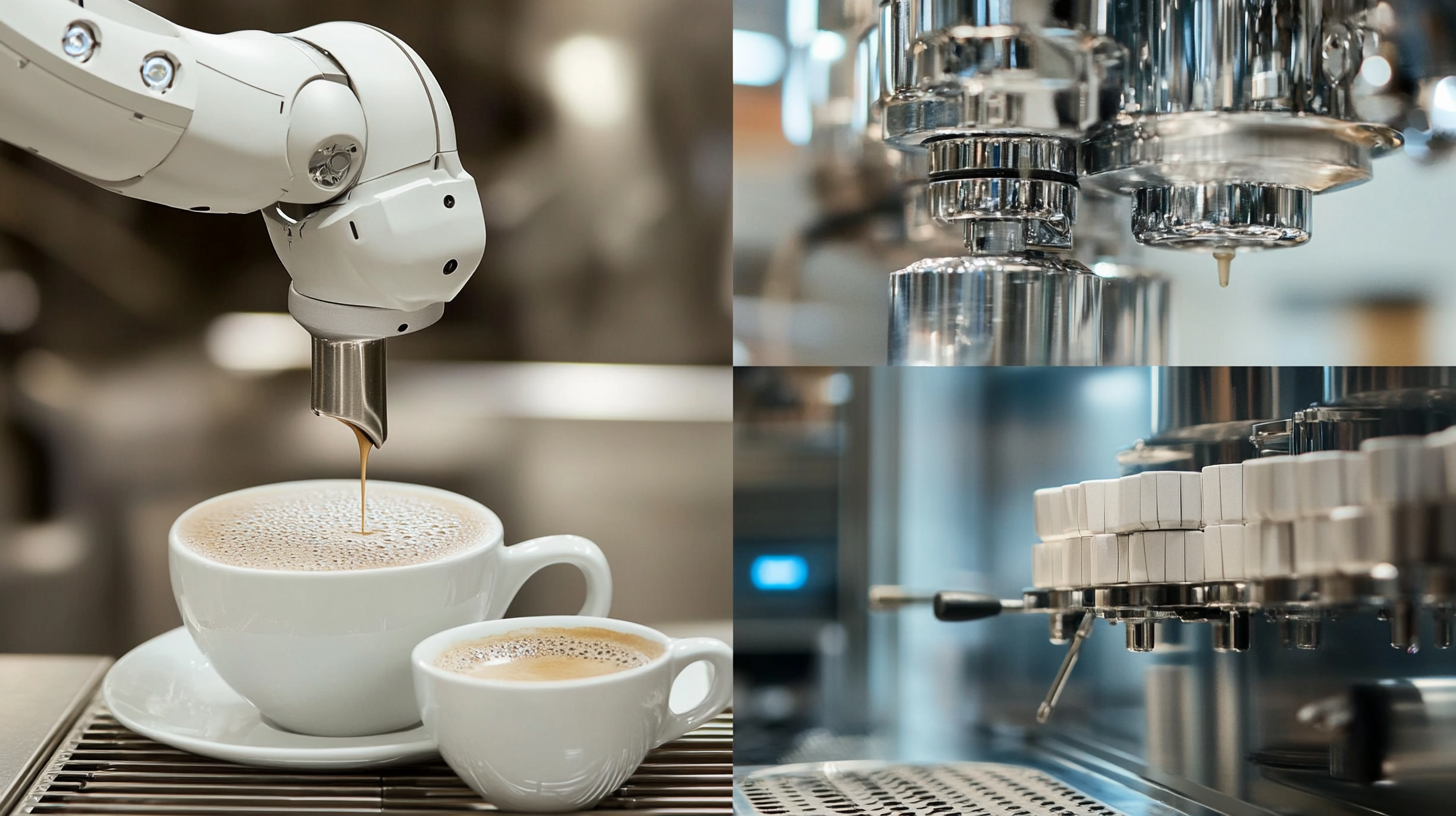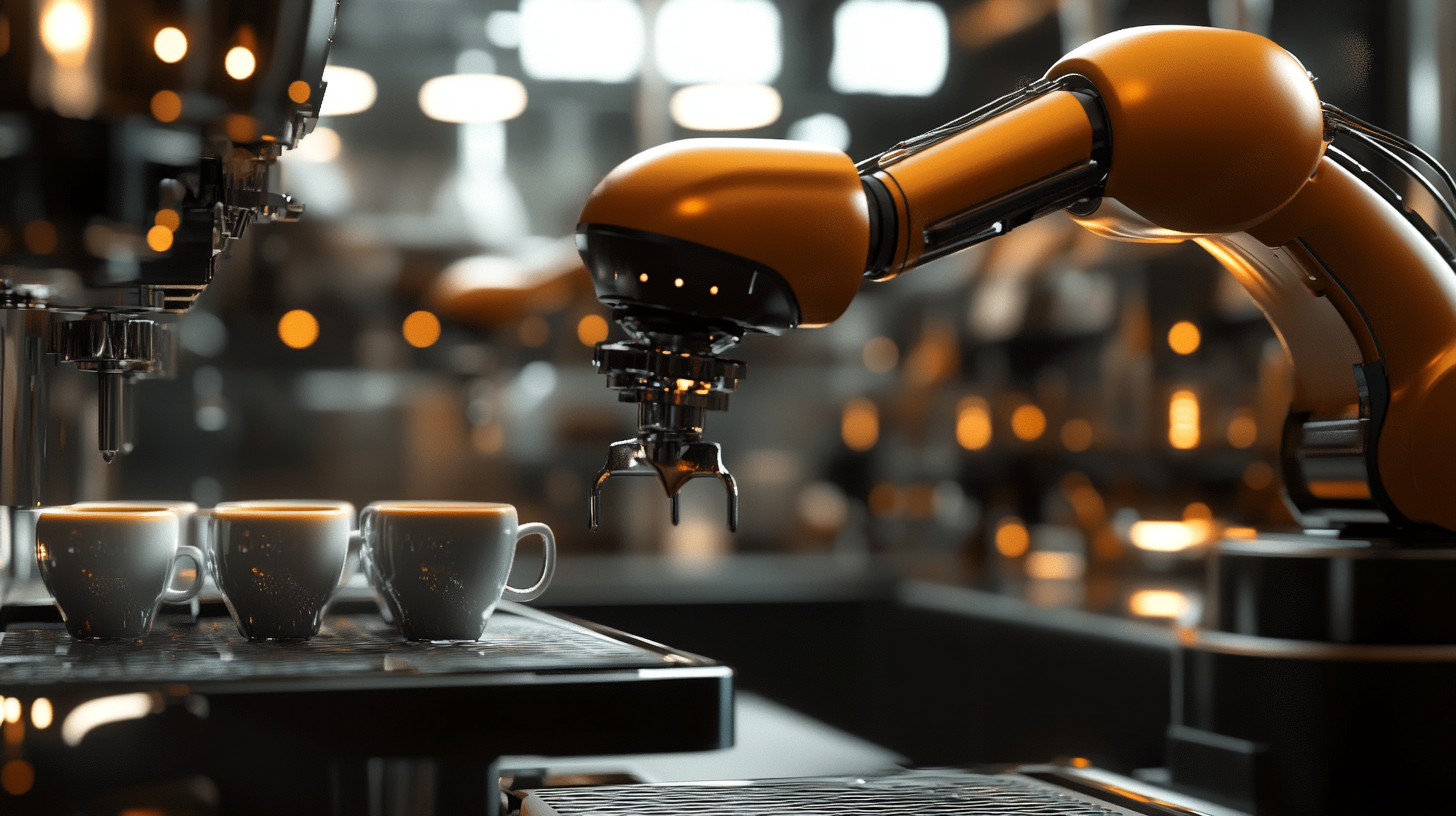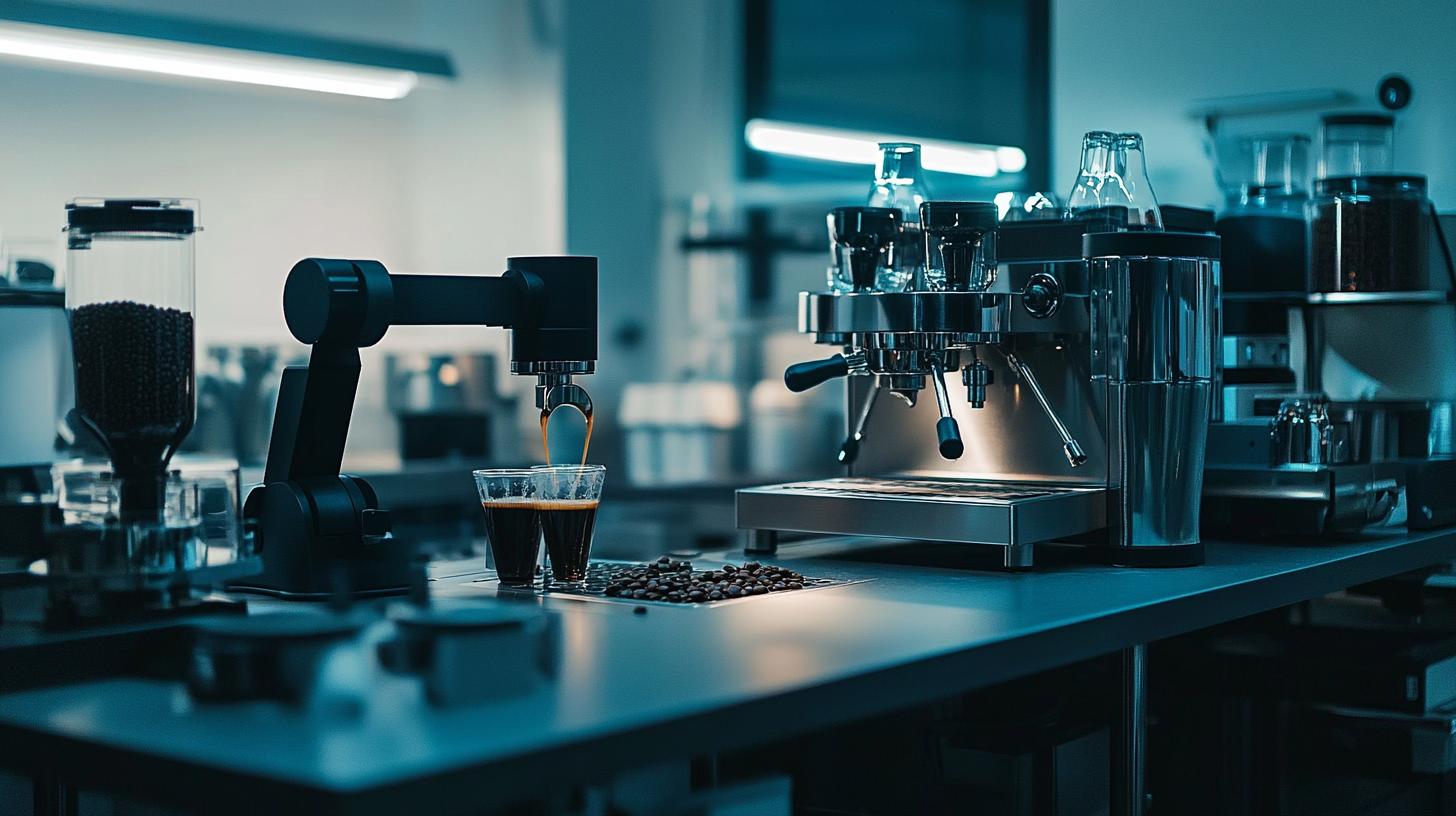Revolutionizing Coffee Production: The Ultimate Guide to Coffee Robot Machines for Global Buyers
In recent years, the coffee production industry has undergone significant transformations, driven by technological advancements and high consumer demand. According to a report by the International Coffee Organization, global coffee consumption is projected to reach approximately 200 million 60-kilogram bags by 2025, emphasizing the need for more efficient production methods. As labor shortages and rising costs challenge traditional coffee farming practices, innovative solutions such as the Coffee Robot Machine have emerged as a game-changer, providing automated and precise approaches to harvesting and processing coffee beans.
The adoption of Coffee Robot Machines not only addresses labor concerns but also enhances productivity and consistency in coffee quality. A study by the Food and Agriculture Organization highlighted that automation in agriculture could lead to an increase of up to 50% in output efficiency. This blog aims to explore the revolutionary impact of Coffee Robot Machines, offering a comprehensive guide for global buyers looking to integrate these cutting-edge tools into their coffee production processes. From understanding the technology behind these machines to evaluating the benefits and potential challenges, we will provide insights that could reshape the future of coffee farming worldwide.

Innovative Technology Behind Coffee Robot Machines
The coffee industry has witnessed remarkable transformations in recent years, driven by innovative technology designed to enhance efficiency and quality in production. Coffee robot machines, equipped with advanced automation and artificial intelligence, are at the forefront of this revolution. According to a report by the International Coffee Organization, the global coffee market is projected to reach approximately $102.15 billion by 2027, reflecting the increasing demand for both specialty brews and sustainable production practices. These machines utilize precision technology to streamline various processes, from planting to harvesting and even brewing. With features like automated bean sorting and AI-driven roasting profiles, coffee robot machines ensure consistency and quality control that were previously unattainable. A recent study by Allied Market Research highlights that the coffee robotics market is expected to grow significantly, anticipated to reach $450 million by 2025, as producers seek to minimize labor costs and maximize output efficiency. Moreover, the integration of Internet of Things (IoT) technology allows for real-time monitoring of coffee growth conditions, enabling producers to optimize their yields. This data-driven approach not only enhances productivity but also supports sustainability efforts as growers can adapt to changing environmental conditions more effectively. The continuous advancement in coffee robot machines showcases a future where technology and tradition blend seamlessly, offering benefits to producers and consumers alike.

Key Advantages of Automating Coffee Production
In today's fast-paced coffee industry, automation has become the cornerstone of modern production. The integration of coffee robot machines offers a profound shift in how coffee is produced, enhancing efficiency and consistency in every batch. With advancements in technology, these machines not only streamline the brewing process but also ensure better utilization of resources, reducing waste and minimizing labor costs. This revolution is particularly evident in key manufacturing regions like Shunde, Guangdong, known as China's appliance capital, where an astonishing 80% of the world’s coffee machines are produced.
Moreover, with the emergence of companies like Luckin Coffee, investing significantly in sophisticated roasting facilities, the landscape of coffee production is rapidly evolving. Their $120 million roasting base in Kunshan, Jiangsu, represents the largest single investment in coffee roasting production in China to date, capable of handling a staggering 30,000 tons annually. This vertical integration within the supply chain is crucial for meeting the growing demand, showcasing how automation in coffee machinery is not just a trend but a necessary evolution to keep pace with global consumption.
The key advantages of automating coffee production extend beyond mere output. Automation ensures precise control over brewing parameters, resulting in superior flavor profiles that meet the discerning tastes of consumers. The scalability offered through robotic machines allows companies to quickly adapt to market trends, ultimately enhancing their competitiveness in a sprawling global market. As coffee lovers worldwide seek quality with convenience, it becomes abundantly clear that investing in state-of-the-art coffee robot machines is essential for any player looking to stay relevant in this dynamic industry.

Top Coffee Robot Brands to Watch in 2023
In 2023, the coffee landscape is evolving rapidly, with advanced coffee robot machines emerging as a game changer for global buyers. Leading brands are at the forefront of this revolution, offering innovative solutions that enhance the brewing experience at home and in cafes. With features that streamline the coffee-making process, these machines cater to both coffee aficionados and casual drinkers looking for convenience without compromising quality.
Among the top coffee robot brands to watch this year, the Breville Barista Express Impress stands out. Renowned for its premium construction and user-friendly design, it provides a mess-free operation and consistently rich flavor yields, making it an ideal choice for creating café-quality espresso at home. This machine exemplifies the blend of technology and craftsmanship that characterizes the best modern coffee makers, ensuring a delightful brewing experience every time.
Additionally, the Café Specialty Drip Coffee Maker has gained recognition for its SCA certification, which guarantees high brewing standards. With its focus on customization and simplicity, this machine delivers a reliably rich cup, appealing to drip coffee enthusiasts. As we explore the landscape of coffee robot machines, these standout brands are proving that automation and superior quality can indeed go hand in hand, paving the way for a new era in coffee production and consumption.

Challenges in Implementing Coffee Robotics Solutions
The integration of robotics into coffee production promises a transformative shift in efficiency and quality. However, the implementation of coffee robotics solutions is fraught with challenges that global buyers must navigate. One of the primary hurdles is the significant upfront investment required to procure advanced robotic machinery. Many farmers and producers have limited financial resources, making it difficult to invest in technology that is still evolving. This creates a gap where only larger operations can afford to adopt these cutting-edge solutions, potentially widening the disparity in global coffee production.
Another challenge lies in the training and adaptation process required for both the equipment and the workforce. Coffee robotics technology is sophisticated, necessitating a skilled labor force that can operate and maintain these machines effectively. In areas where traditional coffee farming practices have persisted for generations, the transition to a robotics-oriented approach may face resistance from workers accustomed to manual methods. This cultural shift, combined with the need for retraining, can slow down the adoption process.
Moreover, there are technical limitations to consider. While robotics can enhance efficiency in certain tasks like planting or harvesting, coffee production is often subject to unpredictable variables such as weather and plant health. Machines may struggle to adapt to these fluctuating conditions, leading to potential inefficiencies. Overcoming these technical barriers will require ongoing research and development to ensure that robotic solutions can meet the dynamic demands of coffee production.
Future Trends in Coffee Industry Automation and Robotics
The coffee industry is on the brink of a transformative shift, driven by advancements in automation and robotics. Recent developments in coffee robot technology, showcased at forums like the Zhongguancun Forum, underline the industry's commitment to deep automation. Robots are now capable of making coffee from scratch, with one robot responsible for brewing while another handles the delivery of the beverage to the customer. This seamless interaction not only enhances efficiency but also brings a new level of precision and consistency to coffee preparation.
Looking ahead, the integration of humanoid robots in various industries, including coffee, suggests a broadening scope for automation. With companies actively experimenting with robotic baristas and other automated solutions, consumers can expect not just novelty but also improvements in service speed and quality. The venture into automation has gained traction, as industry leaders recognize the potential to streamline operations and improve the overall customer experience. Innovations in robotic technologies are paving the way for a future where human-robot collaboration becomes the norm, promising a more dynamic approach to coffee production and service.
As we move into 2024, the outlook for coffee industry automation remains bright. Initiatives by forward-thinking entities indicate a growing appetite for automation solutions that enhance productivity without compromising the artistry of coffee-making. The journey towards fully automated coffee experiences is gaining momentum, with industry players driven by their commitment to innovation and consumer satisfaction. As robots take on more roles, the potential to revolutionize coffee production looms larger, setting the stage for an exciting future in the beverage landscape.
